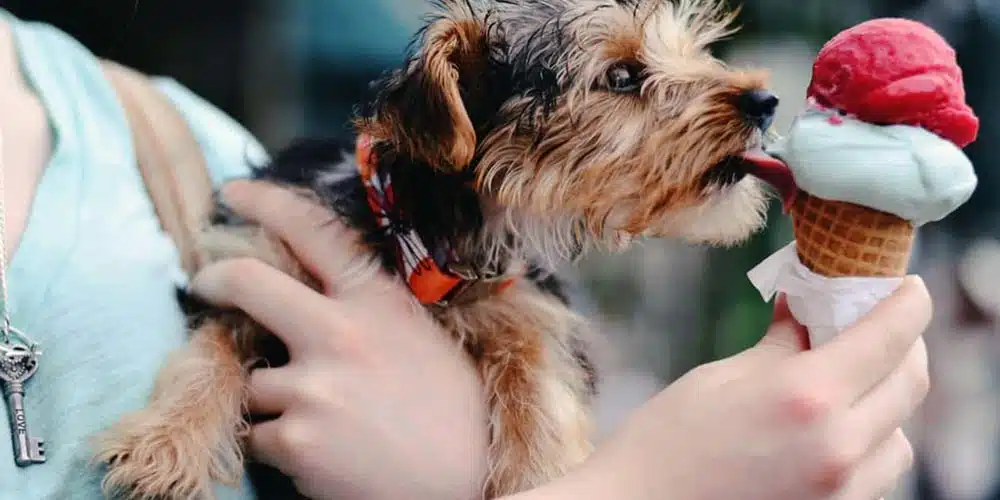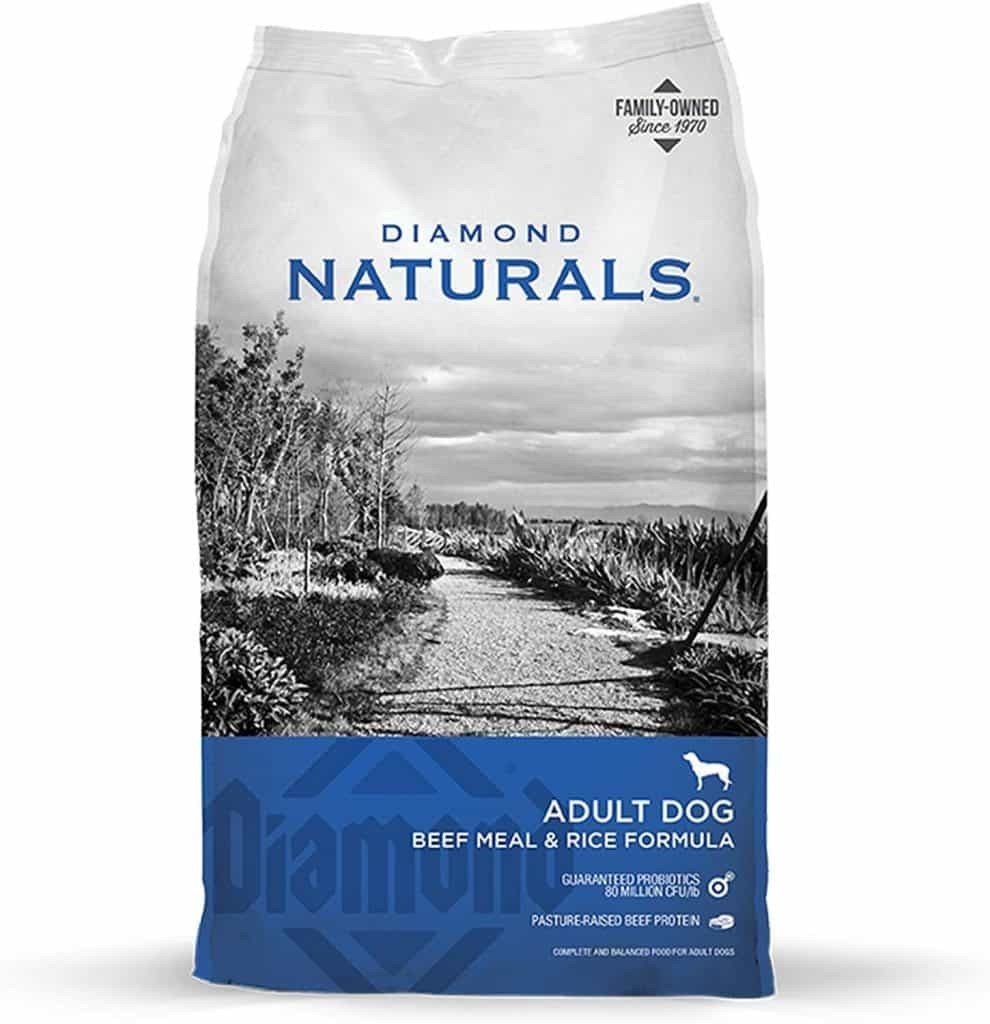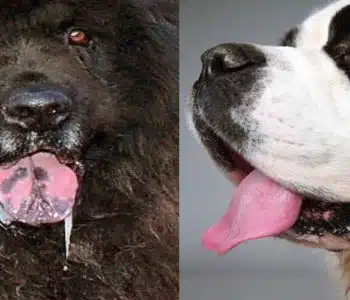
Dachshund Yorkie Mix: The Ultimate Dorkie Guide
As Dorkie as it sounds, a Dachshund Yorkie mix is a superstar among canines. Their tiny size is unbearably cute, their personality is charming and funny, and their temper is a thing to behold.
If you’re considering getting one of these little bombshells, here’s everything you need to know.
History of the Dorkie

The Dorkie is a relatively new designer dog. It emerged somewhere in the last 20–30 years, presumably in the USA. It is not recognized as an official breed, so you can’t get any pedigree papers, and they’re still isn’t much that we know about it. Luckily, it comes from a famous family, and we do know quite a bit about the parent breeds.
Both parent breeds are world-renown hunters. Dachshunds originate from Germany, where they were bred specifically to hunt badgers and other underground-dwelling animals. Their short legs, long and slim bodies, strong lungs, and fantastic sense of smell made their task much more doable. Even Picasso was fascinated by these gorgeous canines. If you are a Dachshund admirer, you can find more of these fun info in Dachshund facts.
Their independence, bravery, and one-track minds enabled them to face formidable adversaries such as badgers. In packs, these fearless little dogs even took part in boar-hunting! While they still do some occasional hunting, Dachshunds are usually kept as companion dogs these days. People adore them, and they currently occupy the 12th position in the AKC’s list of the most popular dogs. The internet is overflowing with Dachshund memes and videos, and this amazing breed was the first official mascot of the Olympic Games, and the first dog cloned in the UK! If you’d like to know more about them, check out these 10 facts you should know about Dachshunds with pictures as well as our Dachshund breed guide.
Yorkshire Terriers emerged somewhere in the 19th Century in Yorkshire, England. Scottish mineworkers brought the dogs with them as they moved to Yorkshire, so Yorkies too, initially worked in mines, where they hunted rats and other vermin. This resulted in the high prey drive that they possess to this day. The British Kennel Club recognized them as a breed in 1874, and AKC in 1885—the same year they recognized Dachshund as a breed. Yorkies became smaller over the years, and today, they are mostly kept as companion dogs. They currently hold the 10th place on the AKC’s list of the most popular breeds.
Three Reasons to Avoid Dorkies
Adorable as they are, Dorkies are not everyone’s cup of tea. Here are three reasons to avoid getting a Dorkie.
- They hate being on their own.
- They love barking.
- They love to chase your cat.
They Hate Being on Their Own
These little boys and girls suffer from severe separation anxiety. They hate being on their own and will bark all the time, destroy your shoes and furniture, and be generally miserable all the time they’re forced to spend away from you. If you live alone and don’t spend much time at home, a Dorkie is not the right choice for you.
They Love Barking
They’ll bark at anything, really. It’s their hobby. They’ll protect your home from all the crazy butterflies flying around, they’ll alert you of the stain on your carpet, and they’ll go on and on about that stupid sparrow on the window sill. If you live in an apartment complex, or you can’t put up with the constant yapping, find another breed because a Dorkie is not for you.
They Love to Chase Your Cat
Okay, so the worst thing about this is that they’ll probably get beaten on a daily basis. Cats don’t even take them seriously most of the time since they tend to be bigger than this tiny cross-breed, so your Dorkie will just end up getting a lot of smacks. That won’t stop them, though—they boast Dachshund-worthy pig-headedness and prey drive.
Other animals in your household won’t take it as easy as the cats. Your Guinea pig will probably get a heart attack from the constant barking, and your hamster might mysteriously disappear. Your parrot will be constantly stressed, and your tortoise… Well, nobody really knows what’s going on through their little heads. But one thing’s for sure—they will retaliate. If you have any animals that are not dogs, don’t get a Dorkie. Their prey drive is too strong and can never be completely removed.
Three Reasons to Adore Dorkies
Source: mistersullivan
If you can live with the downsides, that’s great—you can adopt this beautiful little bundle of joy! Here are three reasons to adopt a Dorkie.
- They make good watchdogs.
- They are apartment-friendly.
- They are great travel companions.
They Make Good Watch Dogs
Their tendency to bark translates into useful watchdog ability. They’ll always let you know when somebody is coming. Unfortunately, they’ll let you know about a great deal of other things too, so you might not be able to tell the meaning from the meaningless barks—but they’ll train you to understand their speech in no time.
They Are Apartment-Friendly
Dorkies are an excellent choice if you live in an apartment; they don’t require a lot of space or an insane amount of exercise, so they won’t mind living in a small flat. If you want a dog but are unsure whether or not you have space for one, get a Dorkie, and you’ll be fine.
They Are Great Travel Companions
Their adventurous spirit and curious nature make Dorkies great traveling companions. They won’t mind traveling often and changing the scenery as long as they’re with their favorite human. They’re also conveniently small, so you can pack them up easily and take them anywhere you want.
Physical Traits and Personality of a Dachshund Yorkie Mix
Dachshunds and Yorkies are small even in their standard sizes, but if you want a tiny offspring, you can cross a Mini Dachshund with a Teacup Yorkie. Yorkie Dachshund mix puppies, therefore, can be as minuscule as 5 inches in height and usually come with long, thick, straight to wavy fur. Coloring may vary, but it’s usually black and tan, with occasional brown, silver, and red pups. Dorkies are sometimes born with one blue eye and normally have the face of a Yorkie with the body of a Dachshund. Like with any other mixed breed, though, there are no guarantees, and you won’t be able to tell what your pup will look like until they’ve grown a bit.
This little mix is a true bundle of joy. They adore people and being around them, which makes them fantastic companion dogs. They’re laid-back and easy-going, and their bark is a cute (and annoying at the same time), shrill little yap. Their intelligence and eagerness to please would make them easy to train if it weren’t for the notorious pig-headedness of the Dachshund part of the family.
Dorkies love their naps! Some of them can nap up to the incredible 18 hours a day, so don’t be surprised if they doze off on your lap.
Dorkies have what is known as “a small dog syndrome”—they tend to think that they’re the leader of the pack (pack meaning you and your family). This makes them nervous and headstrong, so you need to make it crystal clear that you’re in charge. They have a high prey drive and love to chase small animals. They’ll bark at most things—people, cats, bugs, leaves, feathers, grass, cracks in a wall, walls, wind, you name it. This tendency can make them good watchdogs, but it can also be incredibly annoying, especially for your neighbors. They suffer from separation anxiety, and you shouldn’t leave them home alone if you can help it. Unless you let them believe that they’re the Alpha, they’ll get along nicely with children and other dogs, and even cats if they’re properly socialized.
| Weight | 5–12 pounds |
| Height | 5–12 inches |
| Size | Small |
| Coat type |
|
| Coat color |
|
| Shedding | Low |
| Eyes | Brown |
| Nose | Black |
| Ears | Large and floppy |
| Temperament | Loving, cheerful, affectionate, easy-going |
| Life expectancy | 10–14 years |
| Hypoallergenic | Yes |
| Kid-friendly | Yes, but supervision with little children is required |
| New owner friendly | No |
| Breed recognition |
|
How Difficult Is It to Train a Dorkie?

This cross-breed is clever but often stubborn. It has a short attention span and gets bored easily. This makes them challenging to train, and if you’re a first-timer or don’t have a lot of patience, you should probably find a more obedient dog. Both parent breeds were originally hunting dogs. Hunting requires a lot of focus on the prey only while ignoring everything else, so the Dorkie tends to be a bit of a one-track mind as well. If they set their mind on something, you’ll have difficulties persuading them not to do it.
To train this pup successfully, have short and frequent training sessions and focus on positive reinforcement, such as treats and gifts. If you have a little munchkin in your home, follow our guidelines on the best ways to train your puppy and make sure to avoid the most common mistakes in dog training. Dorkies are sensitive to tone and attitude, so stop the session as soon as you feel your patience starts to slip. Punishments will get you nowhere—they’re far more likely to provoke the dreaded Dachshund stubbornness than to lead to anything remotely productive. To gain more insight into their stubborn nature, you can go through our articles on Dachshund training and Dachshund potty training.
What Health Issues Are Common in a Yorkie Dachshund Mix?
The mix of breeds can cancel out some of the common health issues of both breeds, but this is neither a rule nor a guarantee that your pup will be 100% healthy. Here are the most common health issues that affect the parent breeds:
- Intervertebral Disc Disease. This condition affects Dachshunds and Dachshund mixes. Dachshund dogs are prone to back problems, but IDD might be the most severe condition. It happens when the cushioning discs between the bones of the spine deteriorate and slide inwards, pressing on the spinal nerve and causing a lot of pain for your pooch. This condition can end in a paralysis of the dog’s hind legs, so make sure you visit the vet as soon as you notice any signs of pain, weird walking, reluctance to jump, and so on. You need to take good care of your pooch to protect them from future problems and prolong their lifespan. You can find all the info regarding the health of Dachshund canines in Dachshund health issues.
- Portosystemic Shunt. Your pup can inherit this health issue from their Yorkie parent. The shunt affects the liver, which doesn’t get enough blood and, therefore, can’t function properly. If your little buddy shows symptoms such as swaying, loss of appetite, excessive urination, diarrhea, or vomiting, visit the vet immediately.
- Tracheal Collapse. If your Dorkie coughs a lot in different situations—when you pick them up, when they get excited, when you pull on their collar—faints like a proper Victorian lady, and has a wheezy nose and difficulty breathing, they have probably inherited tracheal collapse from their Yorkie parent. This is a chronic disease that progresses over time, so you’ll need regular check-ups with your vet to make sure your buddy is doing okay.
- Patellar Luxation. This is basically a fancy name for kneecap dislocation. Your dog will avoid putting their weight on the affected leg and will be hopping around. Take them to the vet ASAP if you notice any such behavior or any sign of pain.
Less common health issues can include seizures and skin problems, which they can mostly inherit from their Dachshund parent. If your pooch suffers from dry skin, think about adding supplements to their nutrition. Taking your pooch to the vet for occasional preventive tests can help spot many of these issues early on, which can give you a chance to deal with them before they cause any serious damage.
| Major concerns | Minor concerns | Occasional tests |
|
|
|
How Much Exercise Does a Dorkie Need?

Yorkie Dachshund mix is playful and active all the time (except when they’re taking one of their naps), so they burn a lot of energy just by going through their day. It’s all a lot of work, you know. It takes energy to bark at the clouds and chase after the cat all the time. That leaves you with about 30 to 45 minutes worth of exercise requirements a day. You can split that time into two walks and a playing session, but don’t let your pooch off the lead unless you like spending your days chasing after a crazy dog that’s chasing squirrels around.
Dorkies have a tendency to laze around, which can be tempting for you, too, but keep in mind that they do need some exercise. Be careful with stairs—never let this mix run up or down the stairs because that can lead to severe spine injuries.
| Activity level | Recommended miles/day | Activity minutes/day |
| Low | 4–5 | 45 |
What Are the Grooming Requirements for a Dorkie?
Source: mistersullivan
Dachshund Yorkie mix is generally low maintenance. If you get an individual with a short, Dachshund-style coat, you only need to brush it two or three times a month. If you get a long-haired pup, you’ll need to brush it two or three times a week, and, should they inherit the Yorkie’s hair-growing traits, you’ll need to give your pooch a trim every once in a while. Make sure you inspect their floppy ears regularly because those can be breeding grounds for various forms of bacteria. Clean them with a cotton ball and a gentle cleaning solution, but don’t use cotton swabs for safety reasons. You should brush your dog’s teeth every day, but you can get away with two or three times a week. Go through our dog grooming facts and best dog grooming tips for more details.
| Brushing frequency | Brushes for Poodle Dachshund Mix |
| Weekly |
|
What Kind of Food Should You Offer to Your Dorkie?
Source: princeharrythepuppy
The Dachshund Yorkie mix tends to be a picky eater, so it might take several tries to guess their taste in food. They’ll beg for your food, though, every day, at every meal, more or less loudly, depending on their mood. Don’t give them any unless you want to take care of a dog with digestive issues, which isn’t pretty at all. You can find useful ideas in our best dry dog food for small dogs article.
What you should give them is one to one and a half cups of dry food or the equivalent amount of canned food. Choose a high-quality brand in order to keep your pooch strong and healthy. Here are some suggestions:
- Wellness Core® Natural Grain-Free Dry Dog Food. This food is a wise choice for any Dachshund mix because Glucosamine and Chondroitin in it help maintain bone and joint health.
- Taste of the Wild Appalachian Valley Small Breed. This is a great source of protein and fiber, and an excellent choice for a pooch with a sensitive stomach.
- Merrick Grain-Free Puppy Recipe. This chicken-based grain-free dry dog food is a fantastic choice for puppies.
If your pup likes wet food better, check out our best-canned dog food article. For a senior doggo, you should strive to find the best senior dry dog food for them. Little munchkins should also get high-quality formulas, so you will want to find the best puppy food brands.
Check out our food reviews of the following dog food brands:
- Showtime dog food review
- River Run dog food review
- Wellness Core dog food review
Do Dorkies Make Good Family Dogs?
While Dorkies tend to make good family pets, it is unwise to leave them alone with toddlers or preschool-age children. Both the dog and the kids could mean well, but children of that age usually don’t understand what they should and shouldn’t do around a dog (or to a dog). If the play gets too rough and the Dorkie feels threatened, they might get defensive. Don’t be afraid of any serious harm to your kids—a little nip and a bit of growling are probably the worst that’ll happen, but even that can leave lasting psychological consequences on the child.
You’ll be fine with older children, though. Dorkies are playful and happy, and school-age children will adore him or her, and so will teenagers. If there ever was an attention prostitute among dogs, it would be the Yorkie Dachshund mix. And probably Poodle. And Huskies and Pugs. Anyway, Dorkies are definitely up there among the greatest attention seekers, so they thrive in households with multiple people where there is always someone who’ll give them the time of their day. They’ll usually have the strongest bond with one person in the family, but they’ll love everybody nonetheless.
Best Nutrition for Dachshund Yorkie Mix

- REAL MEAT FIRST: Blue Buffalo foods always feature real meat as the first ingredient; High-quality protein from real chicken helps your dog build and maintain healthy muscles; Plus they contain wholesome whole grains, garden veggies, and fruit
- FOR ADULT DOGS: BLUE Life Protection Formula adult dog food contains essential proteins and carbohydrates to help meet the energy needs of adult dogs, and features omega 3 & 6 fatty acids to promote a shiny coat and healthy skin
- ANTIOXIDANT-RICH LIFESOURCE BITS: A precise blend of antioxidants, vitamins and minerals carefully selected by holistic veterinarians and animal nutritionists to support immune system health, life stage needs and a healthy oxidative balance
- A NATURAL DOG FOOD: BLUE dry dog food is made with the finest natural ingredients enhanced with vitamins and minerals; BLUE contains NO chicken (or poultry) by-product meals, corn, wheat, soy, artificial flavors or preservatives

- Essential, high-quality protein for healthy muscle development, and carbs for energy for an active life.
- Calcium, phosphorus and essential vitamins for strong bones and teeth.
- Glucosamine is added for joint health and mobility support.
- Vitamins, chelated minerals and antioxidants contribute to your pup's immune system health.
- No corn, wheat, soy or chicken (or poultry) by-product meals.

- Made in the USA by a family-owned company using quality ingredients from trusted domestic and global sources.
- With real pasture-raised beef protein as the #1 ingredient, this recipe helps support bones, joints, and lean, strong muscles.
- Beef protein provides energy and muscle building blocks, omega fatty acids promote skin and coat health, and superfood fruits like blueberries and oranges offer vitamins and minerals.
- Each serving includes species-specific K9 strain proprietary probiotics, plus antioxidants and prebiotics to help support healthy digestion, immune system health, and overall wellness.
- Made without corn, wheat, artificial flavors, or colors.
Check Out These Other Cute Dachshund Mixes
Dorkie is fantastic, but you might decide that, after all, it’s not your cup of tea. If you still want a Doxie mix, though, there are many other fabulous cross-breeds to consider. Take a look, and choose the one that suits you best.
| Dachshund Pug mix | Dachshund Lab mix | Dachshund Beagle mix |
| Dachshund Golden Retriever mix | Dachshund Pitbull mix | Dachshund Corgi mix |
| Chihuahua Dachshund mix | Jack Russell Dachshund mix | Dachshund Poodle mix |
| Dachshund Yorkie mix | German Shepherd Dachshund mix | Dachshund Terrier mix |
| Pomeranian Dachshund mix | Cocker Spaniel Dachshund mix | Shih Tzu Dachshund mix |
| Min Pin Dachshund mix | Basset Hound Dachshund mix | Dachshund Husky mix |
| Maltese Dachshund mix | Dachshund Dalmatian mix | Australian Shepherd Dachshund mix |
| Border Collie Dachshund mix | Rottweiler Dachshund mix | Doberman Dachshund mix |
| Papillon Dachshund mix | Rat Terrier Dachshund mix | Italian Greyhound Dachshund mix |
| Bulldog Dachshund mix | Blue Heeler Dachshund mix | Boxer Dachshund mix |
| Great Dane Dachshund mix | French Bulldog Dachshund mix | Weimaraner Dachshund mix |
| Dachshund Boston Terrier mix | Cavalier King Charles Spaniel Dachshund mix | Cairn Terrier Dachshund mix |
| Shiba Inu Dachshund mix | Dachshund Bichon mix | Pekingese Dachshund mix |
| Schnauzer Dachshund mix | English Cream Dachshund |
FAQs: Dachshund Yorkie Mix (Dorkie)
1. What is a Dorkie dog?
A Dorkie is a delightful crossbreed resulting from the mix of a Dachshund and a Yorkshire Terrier. Known for their small size and charming personalities, Dorkies make affectionate and loyal companions.
2. What is a Yorkie and Dachshund mix?
A Yorkie and Dachshund mix, commonly referred to as a Dorkie, combines the distinctive traits of a Yorkshire Terrier and a Dachshund, resulting in a unique blend of characteristics from both parent breeds.
3. How big do Dorkies get?
Dorkies are small to medium-sized dogs. On average, they weigh between 5 and 12 pounds, with their size influenced by the genetics inherited from the Yorkshire Terrier and Dachshund parent breeds.
4. How long do Dorkies live?
Dorkies typically have a lifespan of 12 to 15 years, provided they receive proper care, nutrition, and regular veterinary check-ups.
5. Why is my Yorkie shedding?
Shedding in Yorkies can be influenced by factors such as genetics, season, and overall health. Regular grooming and a healthy diet can help manage shedding in Yorkies and Yorkie mixes.
6. How much are Yorkies worth?
The cost of Yorkies can vary based on factors like breeder reputation, pedigree, and geographic location. On average, Yorkies can range from a few hundred to a couple of thousand dollars.
7. When do Yorkies stop growing?
Yorkies typically reach their full size by around one year of age. While they may continue to fill out slightly, the majority of their growth occurs during their first year.
8. How big does a Yorkie get?
Yorkies are small-sized dogs with an average weight of 4 to 7 pounds. Their size is influenced by factors such as genetics and breeding standards.
9. How long do Yorkies live?
Yorkies generally have a lifespan of 12 to 15 years. Proper care, including regular veterinary check-ups, a balanced diet, and a healthy lifestyle, can contribute to their longevity.
References
1. https://en.wikipedia.org/wiki/Dachshund
2. https://en.wikipedia.org/wiki/Yorkshire_Terrier
3. What did your dog do to make you laugh?
4. Jensen, V. F., and K. A. Christensen. “Inheritance of Disc Calcification in the Dachshund.” Journal of Veterinary Medicine Series A, vol. 47, no. 6, 2000, pp. 331–340., doi:10.1046/j.1439-0442.2000.00297.x.
5. Hoppendale, George, and Moore, Asia. Dorkie Complete Owners Manual. Dorkie dog book for care, costs, feeding, grooming, health, and training. Zoodoo Publishing, 2020.
80% of Dogs Develop Arthritis or Joint Pain by 7 Years old – Here’s How to Protect Them
Most of us train our dogs when they are puppies to jump up on furniture. We think it’s harmless (and easier than always lifting them), but for dogs, couches and beds are very high compared to the size of their bodies.
Every time they jump it compresses their back and applies enormous force to their joints.
It’s no wonder that an incredible 80% of dogs experience arthritis or joint pain by only 7 years old.
Luckily, there is a vet-recommended solution.
It’s the PawRamp by Alpha Paw. An adjustable ramp that allows dogs to safely get on and off couches and beds. PawRamp makes joining you in bed or on the couch effortless and fun.
As a bonus, you can use code SAVE35 to get $35 off the PawRamp today.

















